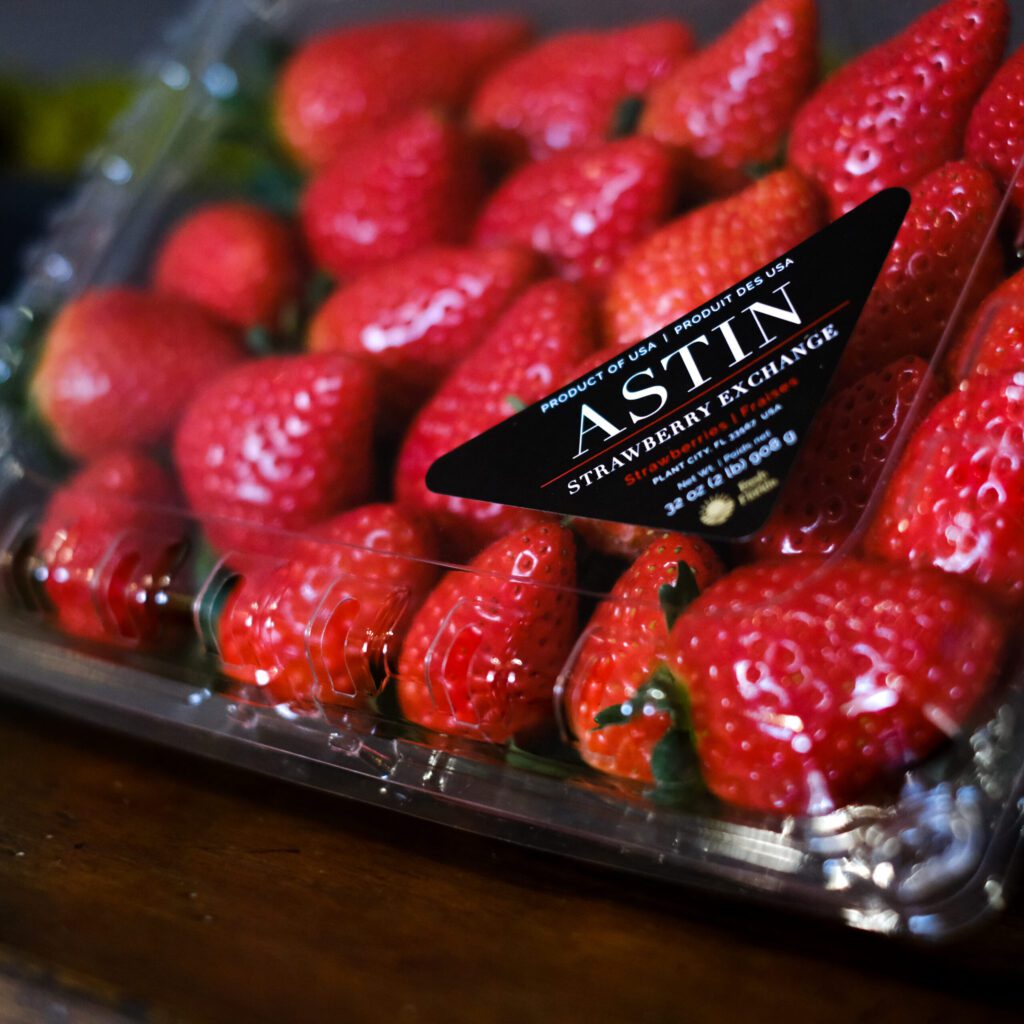After Almost a Century, Plant City-Based Astin Farms Continues to Expand Acreage, Variety
by PAUL CATALA
photos by ASTIN FARMS
It has been about a century since Sam Astin ventured from South Georgia to Plant City and began planting the seeds for one of Central Florida’s most successful and innovative farms.
Over the past 100 years, what started as a small feed store and a few acres of land has grown to become Astin Farms, with more than 1,700 acres of strawberry and blueberry fields producing more than 40 million pounds of fruit each season. In addition to Astin Strawberry Exchange off Holloway Road in Plant City, the family-owned company runs Astin Family Farms in Wimauma and recently opened Astin Plant Company in West Jefferson, North Carolina. That farm produces the ground stock for strawberries, which is then grown and cultivated in Plant City.
From these farms, the company grows and harvests strawberries, blueberries and watermelon sold across the United States and Canada. During the winter and spring, consumers can find their products stocked in Central Florida grocery stores.
Astin Farms now runs under the direction of Sam Astin III, the grandson of Sam Astin Sr., who officially opened the farm in 1923, then selling mostly corn, pole beans and a few strawberries. His original two-room, wood-frame house still stands at the Plant City farm.
Assisting Astin III in running Astin Farms and carrying on the agrarian family tradition are his Plant City-born daughters — Payton Astin, 23, marketing director; Madison Astin, 26, farm manager; and Bailey Astin, 20, farmhand assistant.
Since 2001, the family has worked to market and sell their crops as Astin Strawberry Exchange. In 2011, the farm expanded to Astin Family Farms to provide a packing and cooling facility for the 540-acre farm.
“We just continue to expand, so now we’re taking on more roles as we kind of dived more into the family business,” says Payton.
More recently, in 2018, Astin associates began growing their own strawberry plant buds at the Astin Plant Company plots to bring to Florida to replant in October. Previously, plants were bought at other farms in North Carolina or Canada. Each one produces runners, which make about 25 more plants per mother plant.
Payton says that each year, Astin Farms averages about 5 million flats of strawberries, 2.5 million pounds of blueberries and 40,000 pounds of watermelon.
And to cultivate those numbers, overall, Madison says Astin has a total of about 1,200 labor employees from all farms combined and about 75 in year-round management roles, many of whom work in Plant City and West Jefferson. Madison says their father strives to maintain a “family” atmosphere with its operations.
“It takes a lot of people to get these jobs done,” she says. “I feel like both our (Astin) family and our customers are family. Even employees who aren’t part of our (immediate) family have become part of it, and we want the best quality plants to go to other people’s families.”
Among Astin’s attempts at growing newer plants is the “pineberry,” which is being grown on a trial basis this strawberry season.
Developed by the University of Florida Institute of Food and Agricultural Sciences, the pineberry is also known as the “Berry de Blanc” or “Florida Pearl.” According to plant breeders at the University of Florida, this new whiteish berry is not only unique in color but also smells a bit like a pineapple. It is the first white strawberry to be marketed in the U.S.
Madison says each grower who wanted to participate in farming pineberries was given an acre’s worth of the plants. So far, the demand for them has been strong.
“It’s been going very well, the feedback from customers has been positive and people are eager to try them. I think this is going to be a good experience,” she says. “We’re hoping to expand our acreage on those.”
Like the pineberry acreage, Payton and Madison Astin say they’re proud to be carrying on the Astin Farms legacy of quality produce and steadfast productivity. So far, the 2020-21 strawberry growing season has been slow because of the cold, but activity is expected to peak in the coming weeks.
“As an industry, where we’re at, it’s going to start ramping up in the next few weeks, and I feel like everyone is on the same page,” Payton explains.
So what does the future hold for this family-oriented business?
“We not only want to manage what’s in place but also expand that as much as we can over the years,” Madison says. “We’re definitely prepared to continue on this legacy that we have within the Astin family.”

